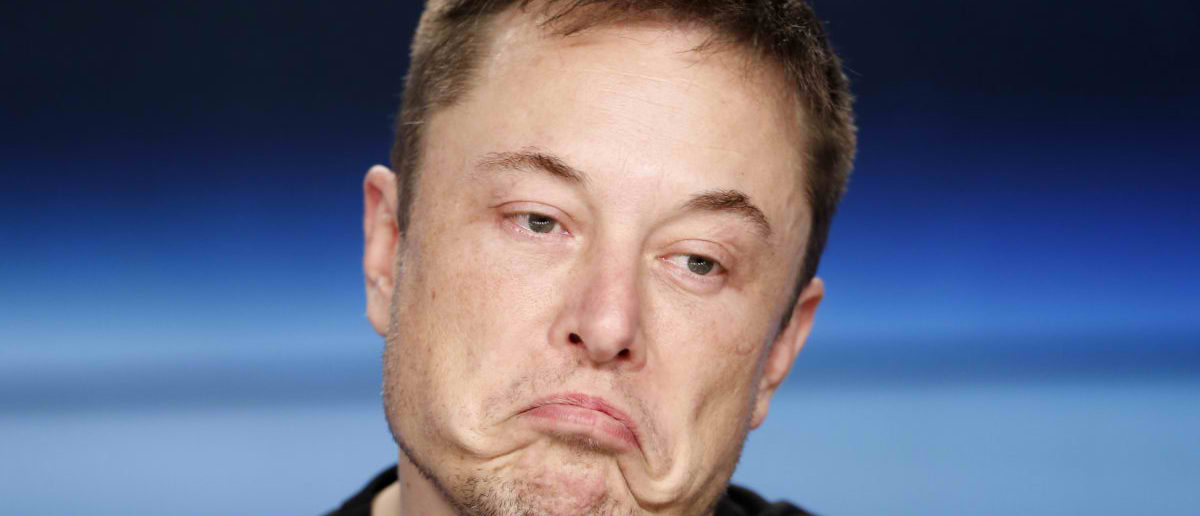
Less than two years after a SpaceX rocket explosion destroyed a Facebook satellite, CEO Elon Musk on Friday dealt the social media giant a public relations blow, deleting SpaceX’s official Facebook page.
In doing so, Musk joined the “#deletefacebook” movement that has shaken Mark Zuckerberg’s company since revelations that Facebook allowed more than 50 million users’ personal data to be mined without their consent by Cambridge Analytica, a firm that worked for conservative political campaigns including those of U.S. Sen. Ted Cruz and President Donald Trump.
In tweets Friday, Musk responded to a challenge to delete SpaceX’s page “if you’re the man?”
“I didn’t realize there was one,” Musk replied. “Will do.”
As is sometimes the case with Musk, it was unclear at first if he was serious. But a short time later, the official SpaceX page with more than 2 million “likes” was unpublished.
“Literally never seen it even once,” Musk remarked of the page.
To a user upset about no longer being able to watch live feeds of SpaceX launches on Facebook, Musk replied, “You’ll live.”
Musk also terminated the Facebook presence for Tesla, the electric car company he leads.
“Definitely,” Musk said of the decision. “Looks lame anyway.”
Musk became the highest-profile business executive to abandon Facebook, a move that could be significant if millions of fans choose to follow his lead. Other notable defectors include Brian Acton, the co-founder of WhatsApp, a messaging service Facebook acquired for $19 billion in 2014.
Musk downplayed the statement he was making, saying he had never been a Facebook user.
“I don’t use FB & never have, so don’t think I’m some kind of martyr or my companies are taking a huge blow. Also, we don’t advertise or pay for endorsements, so … don’t care,” he said.
Musk prefers to correspond and share news in short messages on Twitter, where he has more than 20 million followers.
While deleting his Facebook pages, he did not delete his personal page on Instagram, which Facebook owns.
That was where Musk first shared, for example, pictures of his Tesla Roadster before its launch on SpaceX’s Falcon Heavy rocket. Many had thought the payload was a joke at first.
“Instagram’s probably ok (in my opinion), so long as it stays fairly independent,” Musk wrote.
Earlier, he described his continued use of Instagram as “borderline,” adding that “FB influence is slowly creeping in” to the platform.
On Sept. 1, 2016, a SpaceX Falcon 9 rocket blew up on its pad at Cape Canaveral Air Force Station’s Launch Complex 40, taking out Israeli company Spacecom’s Amos-6 communications satellite in the process. Facebook had purchased capacity on the satellite with the goal of expanding Internet access in Africa.
“Yeah, my fault for being an idiot,” Musk said in a tweet about the mishap, possibly referring to the decision to put a satellite at risk unnecessarily during a rocket fueling test. “We did give them a free launch to make up for it and I think they had some insurance.”
After the accident, Zuckerberg, who was traveling in Africa at the time, said he was “deeply disappointed to hear that SpaceX’s launch failure destroyed our satellite that would have provided connectivity to so many entrepreneurs and everyone else across the continent.”
Facebook is experimenting with drones as a way to deliver Internet access. Musk plans to deploy thousands of satellites with the same goal.
Facebook’s stock has dropped nearly 14 percent since March 16, to just over $159, after reports by the New York Times and The Guardian about the company’s failure to protect users’ data.
The dive slashed Zuckerberg’s net worth by nearly $8 billion, to $66 billion, according to Forbes. He remains one of the seven richest people on Earth, far ahead of Musk, whose nearly $20 billion net worth ranked 54th on Forbes’ list of billionaires.
Facebook, like other major social media outlets, was already under intense scrutiny for its role spreading “fake news” during elections and false conspiracy theories after national tragedies including the school shooting in Parkland, Florida.
The recent news reports prompted the #deletefacebook movement, which has resulted in an unknown number of accounts being deleted.
“We have a responsibility to protect your data, and if we can’t then we don’t deserve to serve you,” Zuckerberg said Wednesday in his first public response to the crisis. “I’ve been working to understand exactly what happened and how to make sure this doesn’t happen again.”

